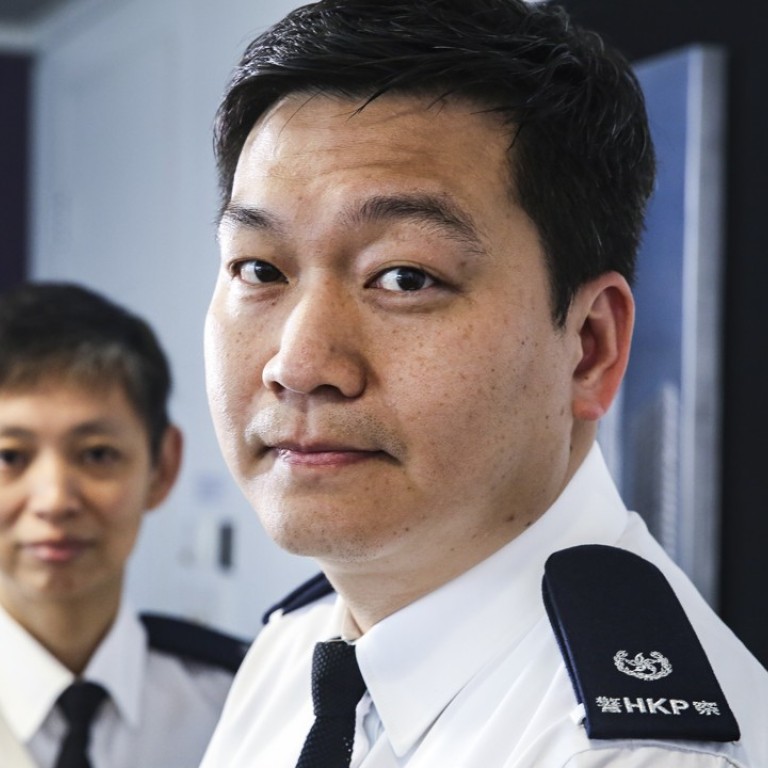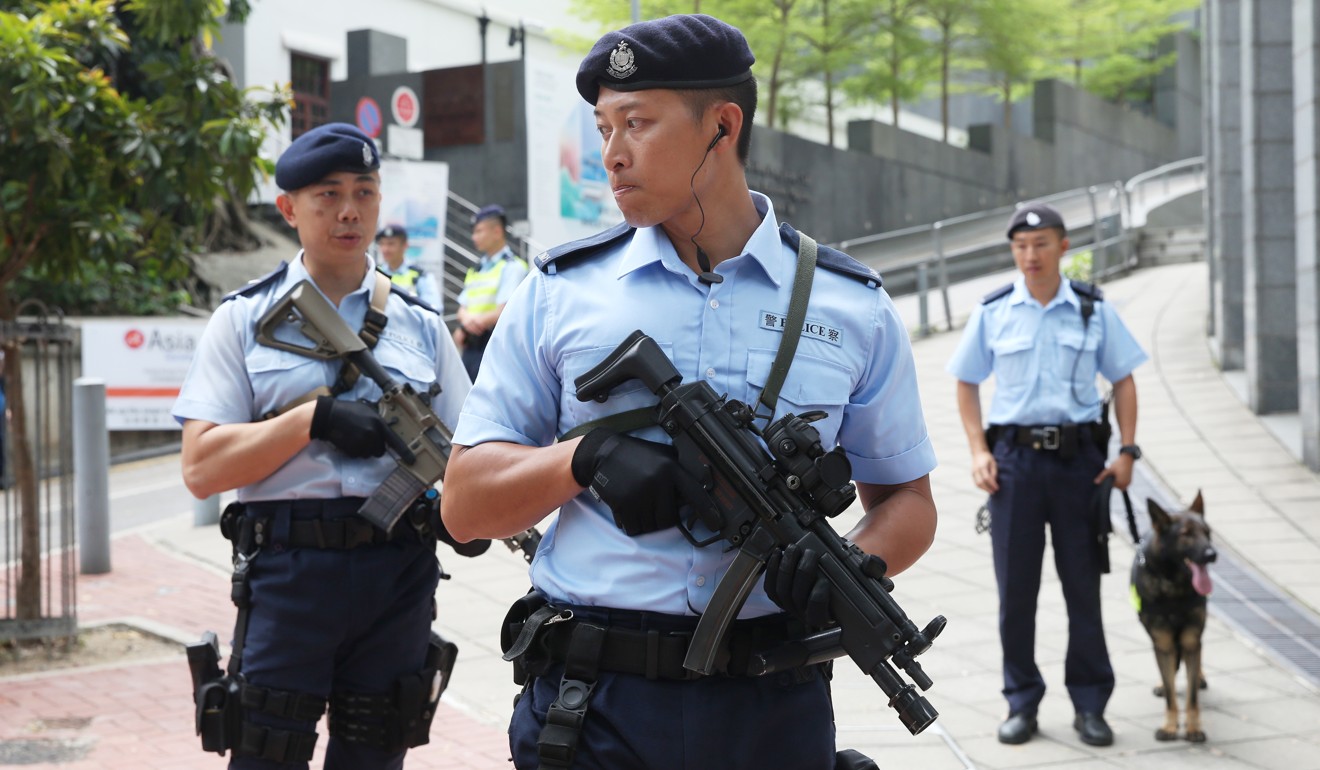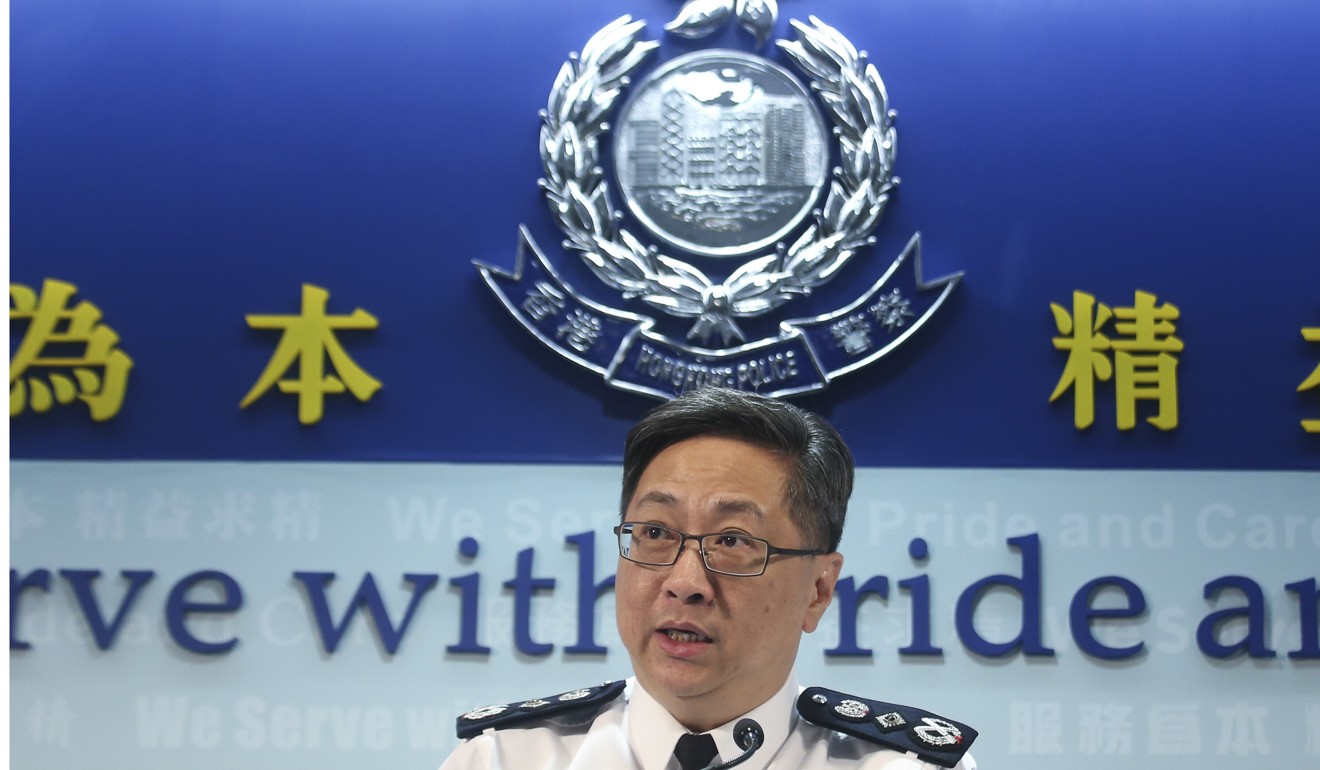
Hong Kong police on alert for terror threat from lone wolves inspired by Islamic State
Anti-terrorist police say extremists may already be lurking in the city, although they have received no intelligence indicating a specific threat
Extremists inspired by the Middle East terror group calling itself Islamic State may have sneaked into Hong Kong or are already lurking in the city, putting anti-terrorist police on alert to prevent lone wolf-style attacks.
Police on Wednesday said the danger was real, but the city’s terrorism threat level remained moderate as there was no specific intelligence indicating an imminent attack or Hong Kong being targeted.
The warning came as security experts urged the authorities to raise public awareness about the threat of global terrorism so as to recruit more “eyes and ears” across the city.
The threat to Asia has come home after attacks in Bangladesh, Indonesia, Malaysia and Pakistan in recent months.
Superintendent Leung Wing-sheung, from the police operations wing, said terrorist groups such as Islamic State had taken full advantage of the internet and social media to spread their radical ideology, putting the city in a vulnerable position.

“Hong Kong is an advanced information city in which people can access promotional materials related to terrorism on the internet easily,” Leung said, adding that anyone could be a potential extremist, not limited by nationality.
“The city also has an enormous international passenger throughput which provides advantages for foreign fighters to enter and hole up here.”
She said Hong Kong could be a potential target because it was high-profile home to many global institutions and representatives, but did not go into details about the possibility of militants already in the city.
You can easily get a truck or a knife anywhere, which makes prevention relatively difficult.
Last year, the United Nations estimated that about 30,000 foreign terrorist fighters, coming from more than 100 member states, were actively engaged in the activities of Islamic State, al-Qaeda and associated groups.
Citing recent deadly attacks in London, Berlin and Niceas examples, police said lone-wolf attacks using pressure cookers and vehicles had become relatively common. This made detection work particularly difficult because those involved often did not have previous links with terrorist groups.
“Unlike the 9/11 attack, which involved a large number of terrorists, materials and financial support, lone wolves act without many plans and associations,” Leung said.
“You can easily get a truck or a knife anywhere, which makes prevention relatively difficult.”
The police force vowed to maintain close contact and intelligence exchanges with its counterparts overseas.
Police were also said to be watching out for suspicious individuals and organisations listed by the UN Security Council.
Security consultant and former police superintendent Clement Lai Ka-chi, who helped form the elite Counter Terrorism Response Unit during his time on the force, said public educationand community links were crucial, as prevention was key to counterterrorism.
“It is impossible to have officers patrolling every corner, and people should be alerted to report any suspicious person to police. It causes no harm to the force but helps reduce the risk of lone wolves,” he said.
“The force is afraid of speaking about terrorism openly as it might cause alarm,” Lai added.
“How many citizens would study the Security Bureau website to learn what to do in terrorist situations?”

Counterterrorism has been an operational priority of Commissioner of Police Stephen Lo Wai-chung over the past decade. Earlier this year, he saw “an increasing threat to Hong Kong”, citing terrorist attacks in Europe, the United States and Southeast Asia, and urging vigilance even in the absence of intelligence indicating the city was under imminent threat.

